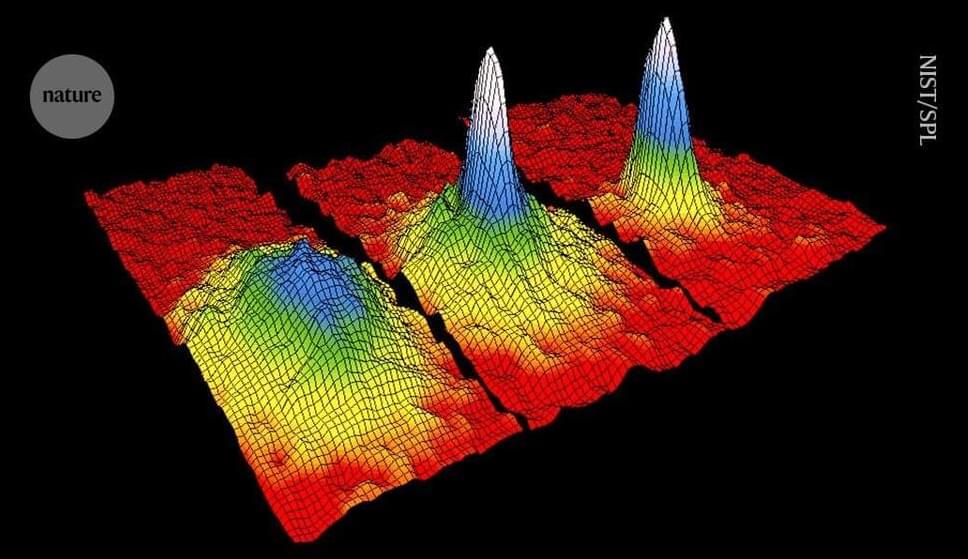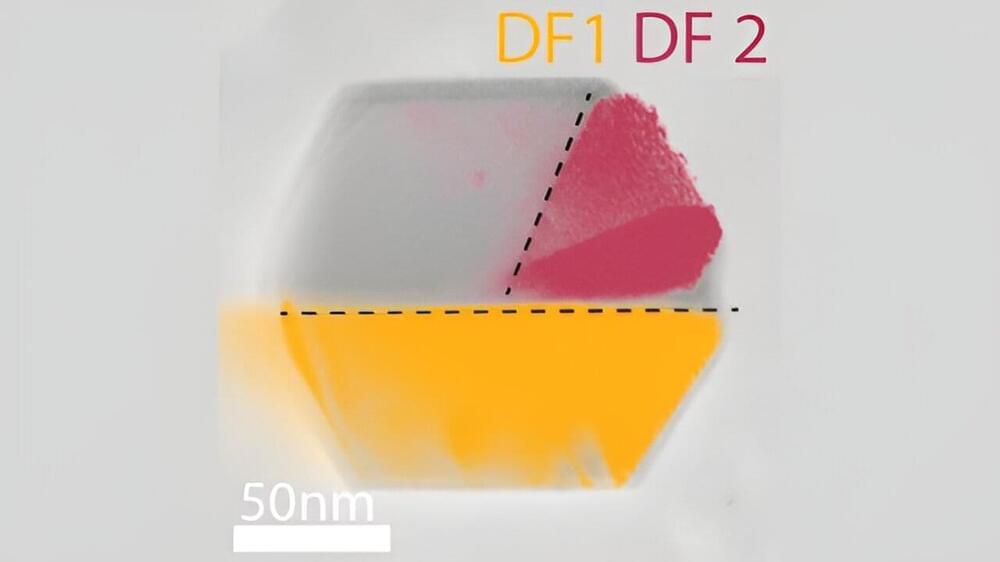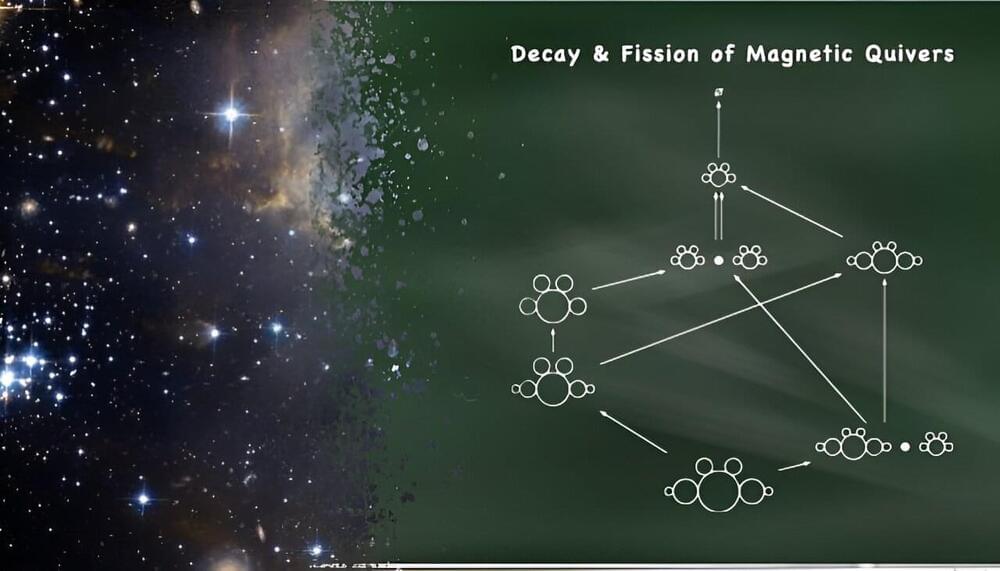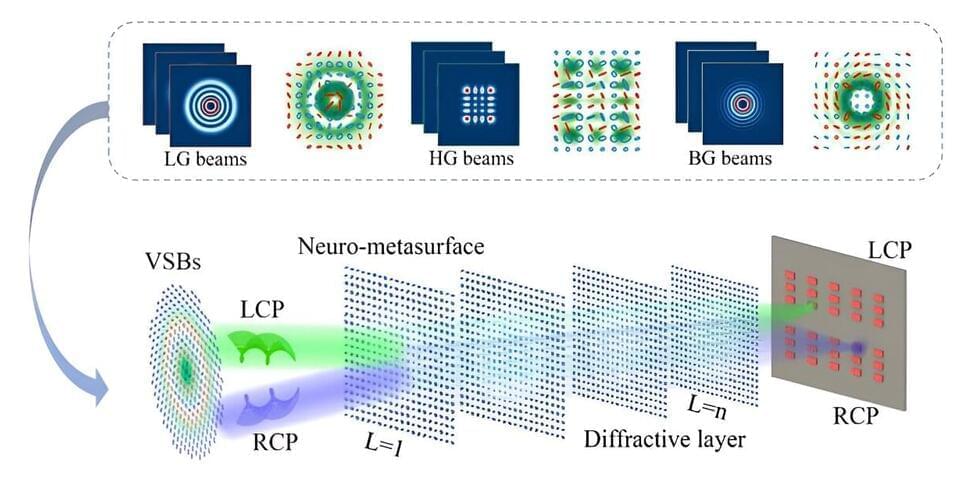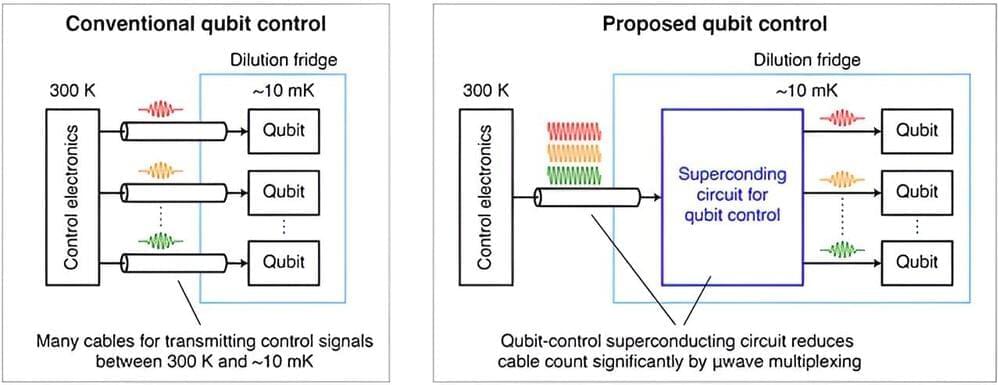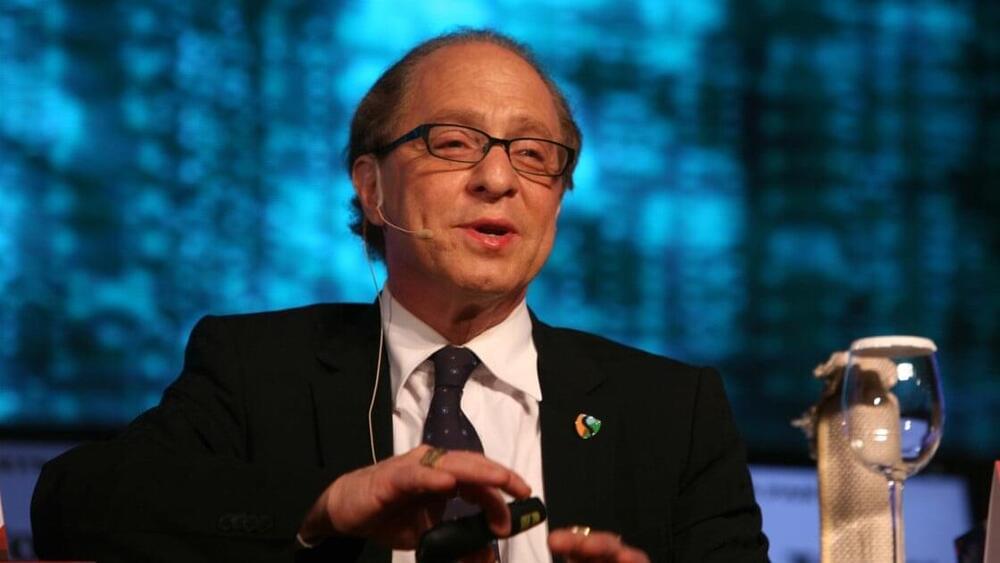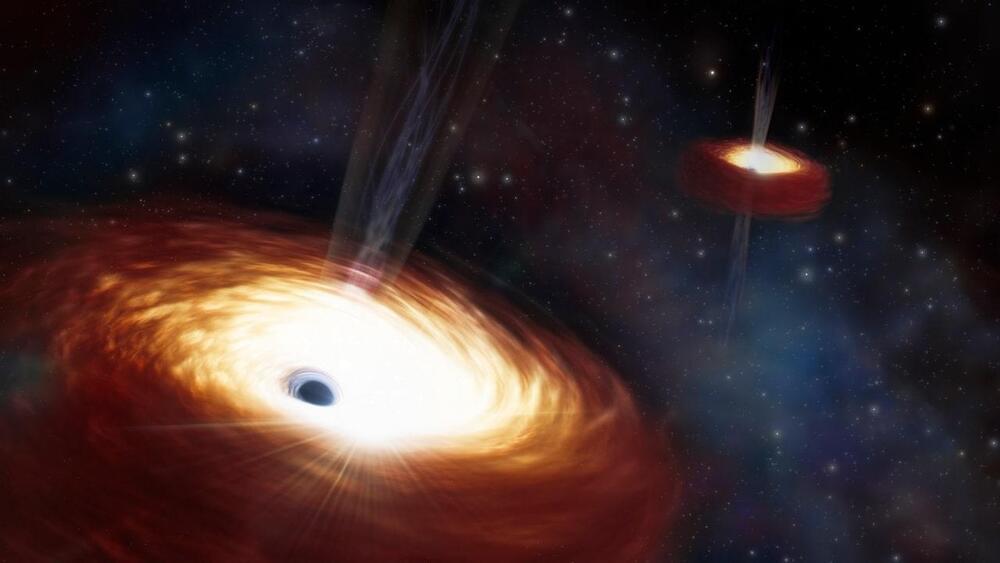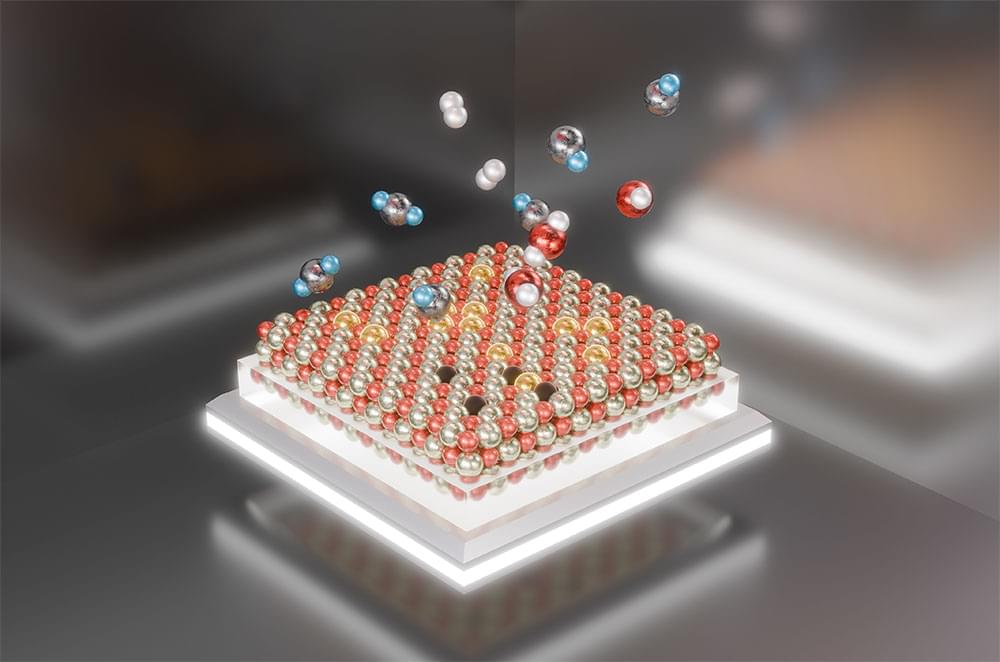Jun 4, 2024
Physicists coax molecules into exotic quantum state — ending decades-long quest
Posted by Shailesh Prasad in categories: materials, quantum physics
The results are “fantastic”, says Yan. They will “really inspire and stimulate the rest of the cold-molecules community”
Exotic phases
Molecular Bose–Einstein condensates could be used in myriad ways. One possibility, says Valtolina, is to create exotic supersolid phases, in which a rigid material flows without resistance. So far this has been achieved only in atomic gases with magnetic interactions — it could now be done in polar molecules, whose interactions are “way stronger”, he says.
